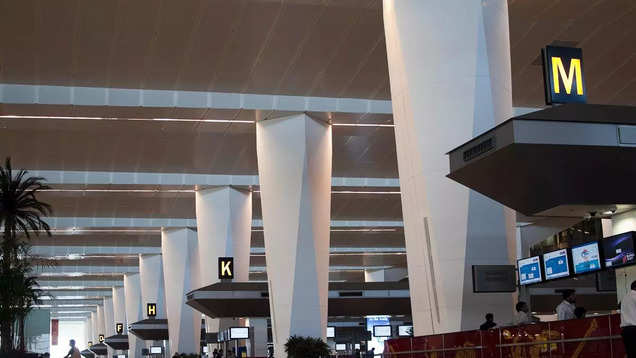2024-07-02 03:10:02

After a roof collapse by heavy rainfall, Delhi Airport’s Terminal 1 (T1) is likely to remain shut for a month. The sad incident took place on June 28, which caused the death of one person and injuries to six other individuals. The accident prompted a comprehensive technical assessment before operations could resume.
Read more: Andhra Pradesh: Exploring Gandikota, India’s Grand Canyon
As of now, structural engineers from IIT Delhi are conducting a study to evaluate the safety and structural integrity of T1. This assessment is expected to take nearly a month, after which a decision will be made regarding the reopening of the terminal, as informed by a senior government official to PTI.
T1 used to handle domestic flights operated by IndiGo and SpiceJet, has temporarily stopped all the operations. All flights originally scheduled at T1 have been redirected to Terminals 2 (T2) and 3 (T3) of the Indira Gandhi International Airport (IGIA), managed by the GMR Group-led consortium DIAL. The shift ensures continuity in flight operations, with IndiGo relocating 72 flights to T2 and T3, and SpiceJet scheduling its Delhi flights from Terminal 3 until July 7.
While DIAL’s cross-functional teams collaborate with stakeholders to assess and manage the situation, a spokesperson emphasized their commitment to passenger safety and operational continuity at T2 and T3. The closure of T1, which recently expanded its capacity to accommodate 40 million passengers annually, underscores the current suspension of all activities pending further notice.Read more: Western Ghats: Best Road Trips For Adventure Seekers
The incident also showcases the impact of severe weather conditions, with Delhi recording exceptionally heavy rainfall—228.1mm in 24 hours at Safdarjung, the highest June rainfall in over 85 years, compared to an average of 75.2mm over the past three decades.

The Directorate General of Civil Aviation (DGCA) and a technical committee convened by DIAL are investigating the incident to ascertain its cause and implications. The Airports Authority of India (AAI) has been instructed to conduct mandatory inspections of structural integrity across all airports, aiming to enhance safety protocols and mitigate future risks.
As stakeholders await the findings of the technical study and investigations, the temporary closure of T1 serves as a precautionary measure to ensure passenger safety and operational resilience amidst challenging weather conditions.






